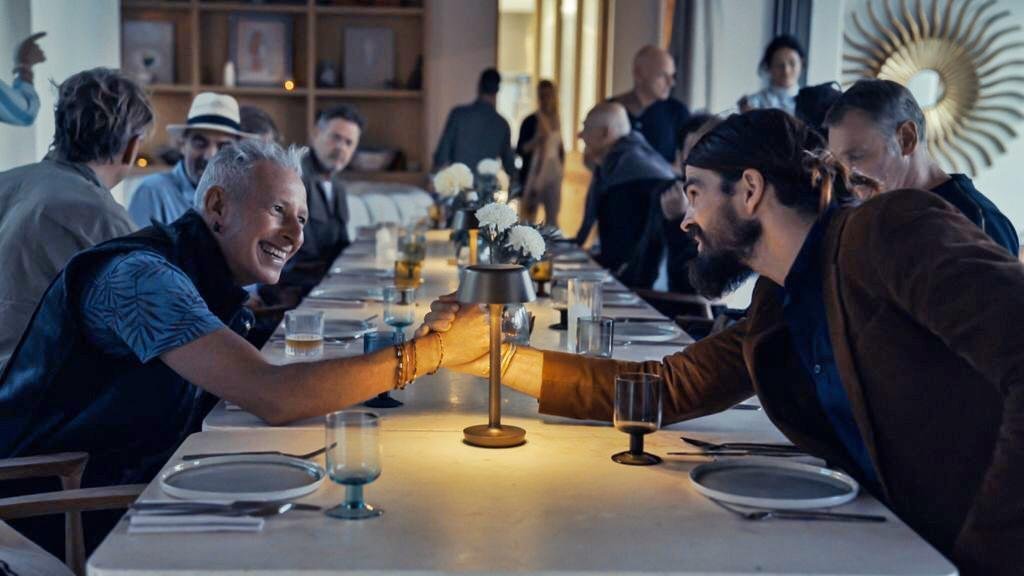A New Kind of Leadership
The world isn’t slowing down, and the need for a new kind of leadership has never been greater. The longer we cling to outdated methods, the harder it becomes to keep up with the demands of modern organisations and teams. Now is the time to invest in yourself and your ability to lead with impact, authenticity, and vision.
Are You Ready?
If you’re ready to break free from outdated models and step into a new kind of leadership, we invite you to join us with some incredible leaders and entrepreneurs. Enrolment is open for just two more weeks, and spaces are limited to ensure an intimate, impactful experience.
A Personal Journey and Mission
Unconditional Men is more than a program; it is a mission. Through retreats, workshops, and online programs, I will continue exploring how we can grow together and create a world our children and grandchildren will want to live in.
This mission is grounded in a positive and inspiring vision for the future—and actionable steps to co-create a more beautiful world our hearts know is possible.
If this resonates with you, stay tuned for updates, insights, reflections, and opportunities to engage in this work. Together, we can heal, grow, and build the future we envision.
The Inner Work of Leadership
In today’s fast-paced, hyper-connected world, leadership is no longer just about making bold decisions or driving business outcomes. The most impactful leaders are those who have cultivated self-awareness—a deep understanding of their inner world and how it influences their actions, relationships, and decisions.
Self-awareness is more than a buzzword; it’s the foundation for authentic and effective leadership. It allows you to see the bigger picture, lead with clarity, and build trust with your team and stakeholders. But achieving this level of introspection isn’t automatic. It requires intentional effort—inner work—to become aware of the unconscious patterns, beliefs, and emotions that shape your leadership.
How the mother wound shows up in business
In the realm of leadership and business, much attention has been given to external factors like strategy, innovation, and performance metrics. But beneath the surface, unseen emotional patterns often influence our decisions, relationships, and overall effectiveness. One of these deep-rooted patterns is the mother wound—an emotional imprint formed through our early relationship with our mother or maternal figures.
While the father wound often relates to achievement, discipline, and validation, the mother wound speaks to our capacity for connection, care, and self-worth. It shapes how we nurture ourselves and others, how we balance giving and receiving, and how we build relationships in both personal and professional contexts.
How the father wound shows up in business
Many businesses and organisations carry unseen legacies that profoundly impact their culture, decision-making, and leadership styles. Known as the "father wound," this dynamic often stems from unresolved emotional issues or unmet needs experienced by key leaders. These wounds manifest in various ways, influencing workplace behaviours, relationships, and organisational health—often without anyone fully realising it.
Why men's work is important to create new leadership culture
When HBR starts writing about Men’s Mental Health at Work we better start paying attention. For too long, traditional ideas of masculinity have focused on power, competitiveness, and aggression. This has led to a culture where men are often afraid to show vulnerability and emotion, and where they are discouraged from seeking help or support. This outdated notion of masculinity is harmful not only to men, but to business and society as a whole.
Louie Valotti on self-inquiry, trauma, and the authentic self
Very interesting episode on self-inquiry, trauma, and the authentic self, with our Unconditional Men friends, Louie Valloti and Giancarlo Canavesio on the Mangu.tv podcast.
Why I started Unconditional Men? (Part II)
When looking around at what’s happening in the world today, IMHO we are seeing the last outbursts of a limited patriarchal belief system and related fear-based controlling power and resource-driven wars.
Why I started Unconditional Men?
After working a couple of years on my personal growth and inner transformation and moving to Ibiza in 2019, when talking to men, I often felt a feeling of superficiality, disconnection, of something lost, of not being present, sometimes a deep feeling of discomfort, a lack of bonding, of not truly being who you are, …









